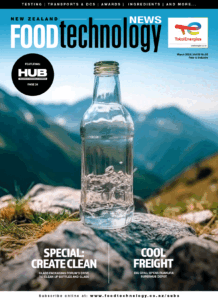New Zealand beverage manufacturers have come out swinging over renewed calls for a sugar tax on sugar-sweetened drinks… although they also admit they are part of the obesity problem.
The New Zealand Beverage Council’s Stephen Jones says a sugar tax is misguided at best, and international evidence shows they are ineffective in reducing obesity anyway.
“In saying this, like all food manufacturers, we know that we are part of the problem and we need to be part of the solution,” he says.
“That is why our members have taken significant steps to provide consumers with more choice, better education and improved information, allowing consumers to make more informed dietary choices. This includes the launch and heavy promotion of low and no-sugar varieties and our strong support of the government’s Healthy Star Rating System. Our members have pledged to only directly sell bottled water to primary and intermediate schools and to not sell sugar-sweetened beverages to secondary schools as part of our commitment to sugar-free schools. We believe that education and nutritional literacy and increased physical activity are key to changing the obesity trends in New Zealand and that a sugar tax will do little to improve the health of New Zealanders.”
Jones says recent research has shown that the most effective measures to combat obesity include reformulating drinks, offering smaller portion sizes and providing better education.
“The reality is that the causes of New Zealand’s increasing obesity rates are numerous and complex, and include the over-consumption of high-energy processed food, a lack of physical activity, environmental factors, parental health and genetic pre-disposition. It is too simplistic to blame New Zealand’s obesity rates solely on sugar. In fact, the intake of sugar and sugar-sweetened beverages fell in both New Zealand and Australia at the same time as obesity rates have been increasing. Since 2010, soft drink consumption has fallen by more than 4%, while sales of low and no-sugar beverages have grown by two-thirds over the past decade, and government data shows that just 5% of New Zealand adults’ calories come from non-alcoholic beverages.”


































































































